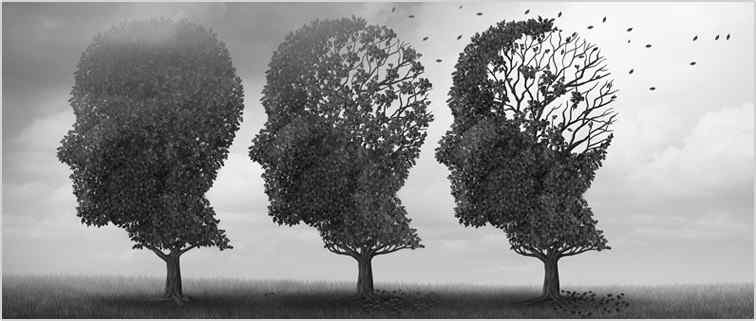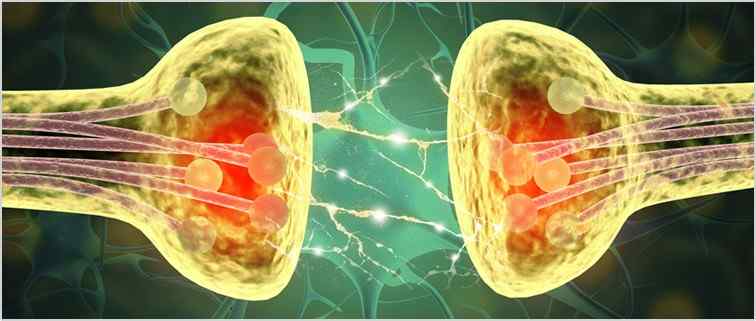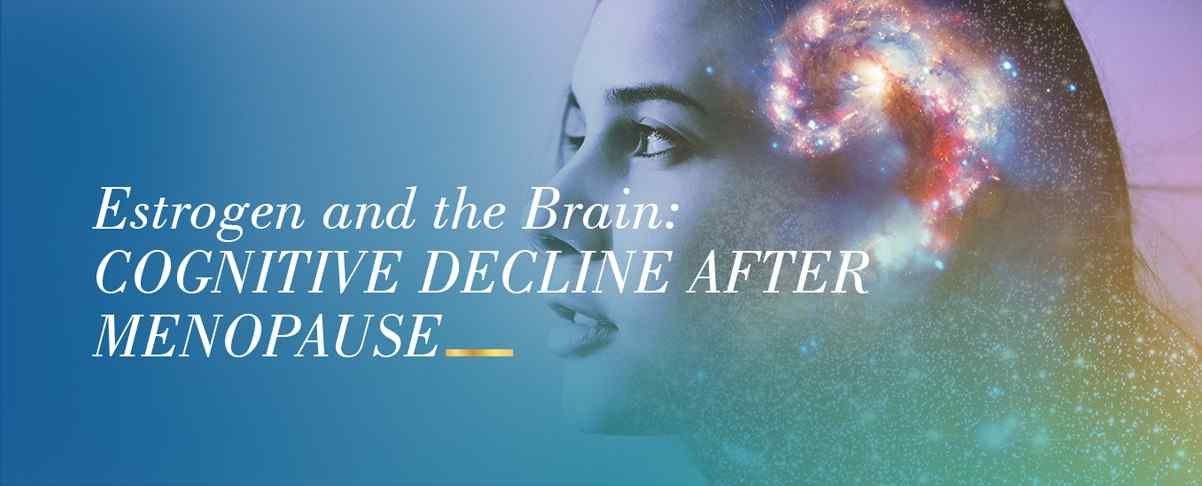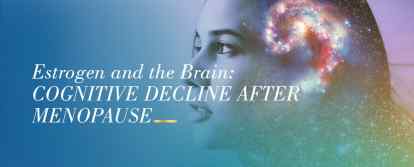The Role of Estrogen in the Brain: Preventing Cognitive Decline

A telltale sign of getting older for both men and women is cognitive decline. However, women may have a bit more to worry about when it comes to memory loss and cognitive function than men. Estradiol—the primary form of estrogen—is intricately entwined with how the brain functions. This is why when menopause occurs and estrogen levels drop, many women experience ongoing bouts of brain fog, memory issues, and general forgetfulness.
Could hormone replacement therapy be the key to deterring cognitive decline in women? Let's take a closer look at the intrinsic role of estrogen and the brain, what we know about estrogen and memory loss, and how hormone replacement therapy and memory loss could be key areas of discussion.

Cognitive decline is normally used to describe change or difficulty in how a person thinks, their memory capacity or capabilities, or their ability to concentrate. Scientifically, however, cognitive decline is used in reference to physical changes in the brain that can take place due to a number of root causes. In simple terms, the brain begins to process proteins abnormally, which can lead to neurofibrillary tangles (NFTs) and amyloid-B plaque accumulation. These physical characteristics are two of the primary indicators of Alzheimer's disease.
General Risk Factors for Cognitive Decline
Cognitive decline is most notably related to aging. For example, some of the latest studies show that over 11 percent of adults experience confusion or memory loss beyond the age of 65. Other risk factors for cognitive decline with age include a history of:
- High cholesterol
- High blood pressure
- History of stroke
- Alcohol or tobacco use
When cognitive decline worsens enough to be diagnosed as Alzheimer's disease, unfortunately, women face greater risks. As many as 1 in 5 women will develop Alzheimer's in their lifetime, and roughly two-thirds of people diagnosed with the disease are women. This seems to indicate a clear link between estrogen and memory loss.
Due to the fact that women are more at risk of Alzheimer's disease than men, there has been a great deal of interest in how estrogen could play a vital role in cognitive function and alternately decline when it is lacking. Working to negate risks for women and delay the onset of cognitive decline has actually grown to be a major public health concern over the last few years.
Estrogen is known to be highly important to brain function. Research shows that the hormone supports better cognitive function by affecting a number of key areas, such as the hippocampus and prefrontal cortex. The brain is actually full of estrogen receptors that act as a complex system of pathways to transducer signals from one area of the brain to another. Many of these receptors are found in parts of the brain that are responsible for things like memory formation and memory recall.
What About Estradiol and the Brain?
Estradiol is the main form of estrogen, and also the most abundant type of estrogen hormone found in the female body throughout the years of reproduction. The less-abundant type of estrogen is estriol. Estradiol also supports much-needed cerebral blood flow, which helps to deter inflammation in the brain and promote activity between neuronal synapses.
Cognitive decline is directly associated with menopause. These changes are thought to be directly related to a drop in estrogen levels. When women reach menopause and estrogen levels drop, this brings about a number of physiological changes, including changes in the brain. For example, the change in levels may also mean a decline in key gray matter, or cellular matter, in the woman's brain.
Some experts claim that the drop in estrogen levels is directly related to a total reorganization of the circuitry of the brain. In other words, the drop in estrogen can alter brain function, memory performance, and even thought processes. Another important factor is the fact that a drop in estrogen automatically means a loss of glucose in the brain. Glucose is utilized by brain cells as a sort of fuel to function.
Cognitive Function After Menopause Due to Estrogen Loss
Several trademark symptoms of cognitive decline are natural when women reach menopause, even though the severity of symptoms can vary from one person to the next. Women going through menopause commonly complain about:
- Having a difficult time with memory
- Experiencing general forgetfulness (e.g. losing or forgetting everyday items, names, or tasks)
- Impairment of general cognitive skills, such as solving problems
- Dealing with ongoing "brain fog" or an inability to concentrate or focus
Oddly enough, earlier in life, women tend to have better verbal memory than men. However, this verbal memory recollection capacity is reduced after menopause.
Usual Treatment Options for Cognitive Decline and Alzheimer's Disease
Several prescription medications have been approved for use to potentially help with cognitive decline and Alzheimer's disease. While there is no cure for Alzheimer's, the medications have been shown to potentially help with symptoms like memory loss, confusion, and inhibited cognitive processes. A few examples of typical medicinal treatments include:
- Cholinesterase inhibitors like donepezil or rivastigmine
- Glutamine regulators like Namenda
- Cholinesterase inhibitor and glutamate regulator combined like Namzeric
While all of these medications do show some level of efficacy, they also come along with uncomfortable and concerning side effects, such as dizziness, confusion, and loss of appetite.

Hormone replacement therapy (HRT) has been examined numerous times for its potential to deter or improve cognitive decline in women. These studies have revealed important findings that may be helpful going forward, even though more research does need to be done to make any definitive claims.
Some studies have found that HRT may have benefits for cognitive function if it is taken in the early years after menopause begins. However, the same study also found that HRT negatively affected verbal memory in women who started treatment after the age of 65. A systematic review published in 2020 also found that HRT was beneficial for women with Alzheimer's disease in terms of improved cognition scores.
In another 12-year study of women, researchers looked at the relationship between the exposure of endogenous (natural) hormone exposure and HRT with cognitive performance. There was a significant improvement in cognitive function among women who reached menopause later in life or had a longer reproductive window. Further, women who underwent hormone therapy within five years of the onset of menopause had statistically better cognitive performances.
If you are a woman who is going through menopause, it is important to talk to your doctor about treatment options. While HRT is not a solution for every woman, this may be a treatment to consider when it comes to deterring problems with cognitive decline. All forms of HRT can come along with understood risks. Therefore, it is important to discuss the risks compared to the benefits of HRT treatment to determine if HRT is right for you personally.
Want to know more about hormone replacement therapy options? Reach out to our team at Harbor Compounding Pharmacy to learn more.



